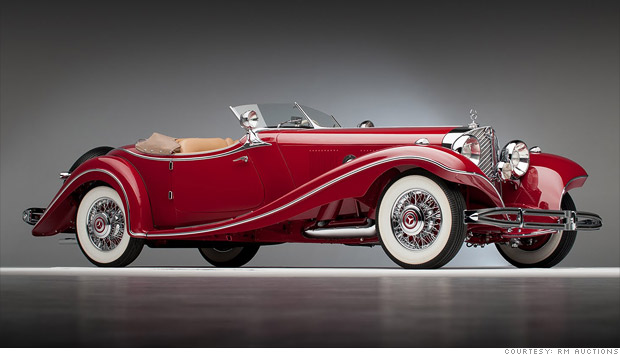Offline
I'll run this up the flagpole and see who salutes ...
What is the purpose of "classic car plates"?
Here in Connecticut, your car is "classic" if it's at least 20 years old. So a 2003 car/suv/trailer, etc. is eligible.
And if the car has a classic plate, it's maximum property tax value is $500. Thus a 1935 Mercedes-Benz 500K, recently sold for $3.5 million, is taxed as though it's only worth $500.

A 1959 Triumph TR3, sold recently for $29,000, is taxed as $500.
Seems that most folks who can afford to maintain a 20 year old car could afford to pay the taxes on its "book value".
Let the kerfluffle begin!
Tom M.
What is the purpose of "classic car plates"?
Here in Connecticut, your car is "classic" if it's at least 20 years old. So a 2003 car/suv/trailer, etc. is eligible.
And if the car has a classic plate, it's maximum property tax value is $500. Thus a 1935 Mercedes-Benz 500K, recently sold for $3.5 million, is taxed as though it's only worth $500.

A 1959 Triumph TR3, sold recently for $29,000, is taxed as $500.
Seems that most folks who can afford to maintain a 20 year old car could afford to pay the taxes on its "book value".
Let the kerfluffle begin!
Tom M.

 Hi Guest!
Hi Guest!

 smilie in place of the real @
smilie in place of the real @
 Pretty Please - add it to our Events forum(s) and add to the calendar! >>
Pretty Please - add it to our Events forum(s) and add to the calendar! >> 

